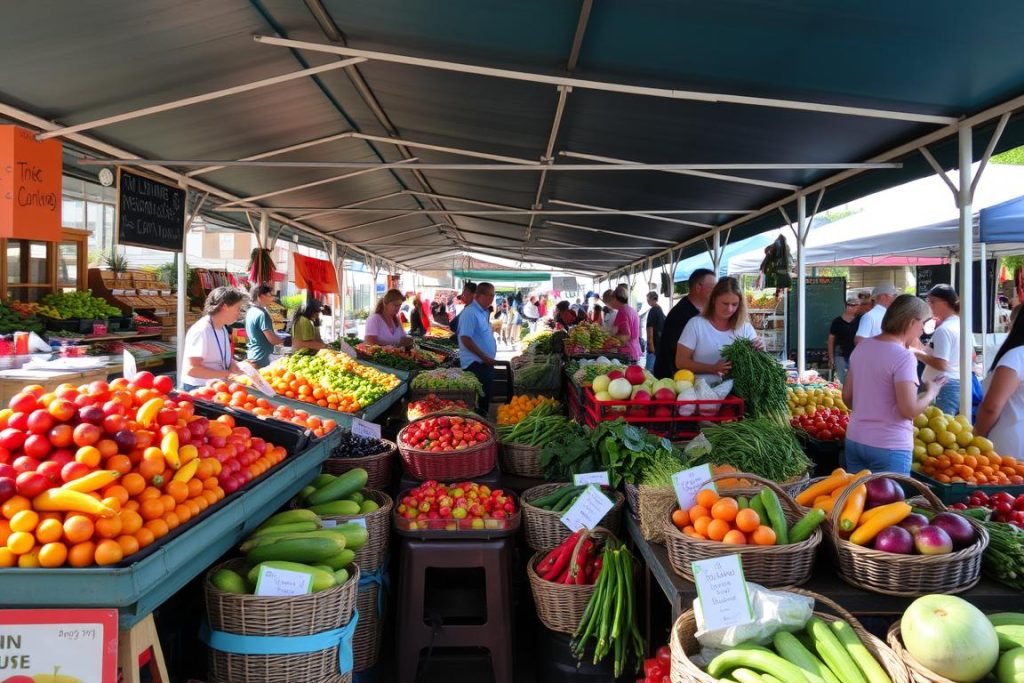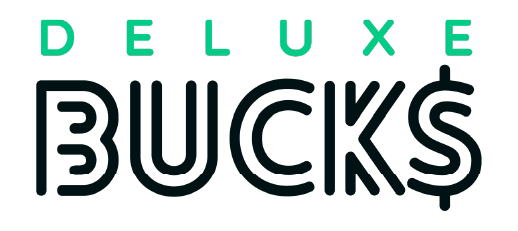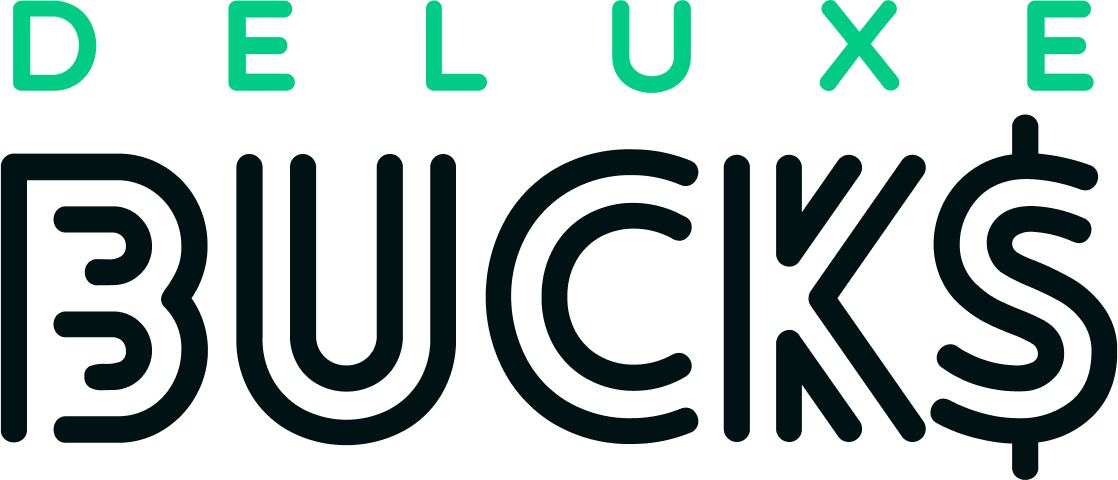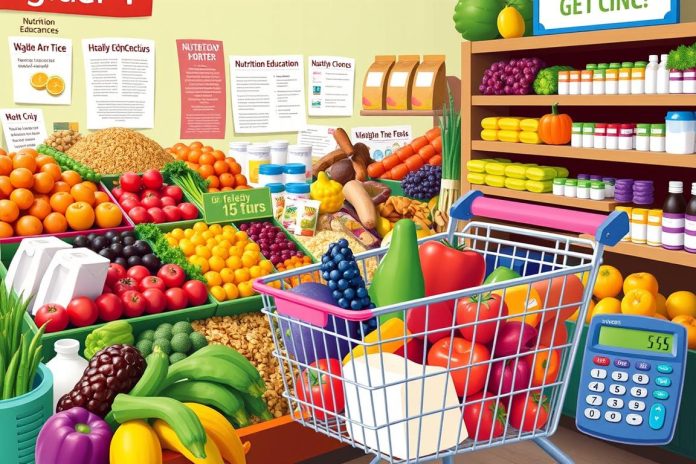Life can be busy, and making sure your food budget stretches can be tough. This is especially true for families trying to eat healthily. The Supplemental Nutrition Assistance Program (SNAP) is here to help. It uses technology to make shopping easier, allowing people to buy more food that’s good for them. But, with recent economic changes and the end of extra SNAP help because of the pandemic, nearly $3 billion per month has been lost. This affects many, especially seniors, those with disabilities, and children1. With living costs rising and food prices going up, making the most of your SNAP benefits is more important than ever.
There’s good news, though. Many strategies and programs can help your SNAP dollars go further. For instance, more than 25 states have joined the Double Up Food Bucks program1. The USDA runs not just one, but 16 nutrition assistance programs1. Apps like MyPlate also offer smart shopping tips1. Plus, you can find help quickly through the Hunger Hotline1. If you shop online, you can use SNAP benefits on sites like Instacart and DoorDash1, often without paying delivery fees. This makes managing your nutrition easier than ever.
Key Takeaways
- End of extra SNAP assistance challenges household budgets, making effective benefit use crucial1.
- Double Up Food Bucks program is an excellent avenue to maximize food value1.
- Explore the USDA’s plethora of resources, including 16 nutrition assistance programs and money-saving apps like MyPlate1.
- Use the Hunger Hotline to connect with emergency food and government assistance1.
- Take advantage of online grocery shopping with SNAP/EBT and look for waived delivery fees1.
Understanding SNAP and How It Supports Food Insecurity Assistance
The Supplemental Nutrition Assistance Program (SNAP) is key in the USDA’s efforts to help with food insecurity. It helps low-income families buy groceries, making it easier for them to get nutritious food. Whether you’re in a big family or living alone, it’s important to know how SNAP can help you.
In Texas, whether you can get SNAP depends on things like how many people are in your household and your income. For a single person, the most you can earn a month to qualify is $1,775. A family of five can earn up to $4,2682. The amount of SNAP money you can get ranges from $250 for one person to $1,504 for a family of eight. This shows how SNAP adjusts to meet different family sizes and needs2.
SNAP is also inclusive, helping different kinds of people. Adults without kids can get benefits for up to three months in three years if they meet work rules23. This way, SNAP does more than just give food aid — it encourages people to become self-sufficient. Plus, the Texas Simplified Application Project (TSAP) makes it easier for old people or those with disabilities to apply and get more help2.
SNAP supports buying many kinds of foods like fruits, veggies, and meat. This spending helps local businesses and the state’s economy. Yet, Texas has one of the lowest numbers of people using SNAP, with only 70% of those eligible signing up3.
In summary, SNAP and similar programs are there to help you eat healthily if you’re struggling with food insecurity. They give financial support and make good food more accessible. This aid is good for you and for your community’s health.
Nutrition Assistance Programs: Stretching Your SNAP Benefits Effectively
Now more than ever, it’s important to make the most of your SNAP benefits. As food budgets get tighter, your nutritional needs remain the same. Knowing how to use these benefits will change the way you shop and eat for the better.
Utilizing the Thrifty Food Plan to Plan Your Shopping
The USDA’s Thrifty Food Plan helps people on assistance programs make their food stamps go further. It encourages planning meals around affordable, nutritious staples like beans, rice, and pasta. A striking 87.1% of SNAP users focus their spending on fruits and vegetables. This shows their dedication to eating healthily4.
Benefits of Shopping at Farmers Markets with Double Up Food Bucks
Shopping at farmers markets can make your SNAP benefits go twice as far. This is thanks to the Double Up Food Bucks program. Now available in over 25 states, this program makes fresh produce more affordable. It also boosts the local economy, as spending locally generates more economic activity5. Every dollar spent there really counts6.

Planning and Preparing Meals with USDA Nutrition Support Resources
The USDA provides lots of help for meal planning and prep to make the most of food stamps. Their MyPlate App and the Shop Simple tool offer great tips for eating well on a budget5. They also have a program to ensure seniors get healthy food every month. This gives them nutritional support and stability5.
Ordering Groceries Online Using SNAP
Ordering groceries online with SNAP is a game-changer for many. It’s essential for those in areas with few stores or without good transport. Many places offer free delivery for SNAP purchases, making it even easier. Remember to check delivery costs, though, as SNAP won’t cover these4.
By taking advantage of USDA programs and shopping smart, you’ll extend your SNAP benefits. More than just aid, these programs are a path to better eating and well-being25.
Conclusion
In times when nutrition assistance programs are key for food security, we must highlight the role of government food aid. A look back shows that SNAP, starting as the Food Stamp Program, has helped millions since 1939. Today, hunger levels are still high, showing the ongoing need for this aid7.
By 2011, SNAP supported over 46 million Americans, with costs exceeding $75 billion8. These numbers reveal the program’s vital place in our social safety net.
The impact of SNAP is hugely significant. Data shows without food assistance programs, hunger would rise7. Yet, there are calls to make these programs better. Ideas include encouraging partnerships to lower hunger and to strengthen child nutrition efforts7. Enhancing food stamps and programs like WIC is crucial for a better tomorrow.
With the end of extra SNAP benefits, benefit adjustments aim to support your health. Plan your shopping using the Thrifty Food Plan. Use farmers markets and online resources to stretch your benefits further. This way, you help in the bigger goal of boosting nutrition security for everyone in the country.
For more on making SNAP better and policy ideas, check out the report here Improving SNAP Allotments and Adequacy7. As food aid changes, it’s important to adapt your approach to make the most of these key programs.
FAQ
What is the Supplemental Nutrition Assistance Program (SNAP)?
How do I maximize my food budget with SNAP benefits?
Can SNAP benefits be used for online grocery orders?
What is the Thrifty Food Plan and how does it relate to SNAP?
What resources does the USDA offer to support SNAP recipients in meal planning?
How have SNAP benefits changed since the additional emergency allotments ended?
What is Double Up Food Bucks and how can SNAP recipients benefit from it?
Are there special considerations for SNAP recipients with dietary restrictions or specific nutritional needs?
How do delivery fees work when ordering groceries online with SNAP benefits?
What strategies can SNAP recipients use to cope with rising grocery prices?
Source Links
- 5 Ways to Stretch Your SNAP Benefits – NerdWallet – https://www.nerdwallet.com/article/finance/snap-food-benefits
- Supplemental Nutrition Assistance Program (SNAP) – Feeding Texas – https://www.feedingtexas.org/snap/
- Supplemental Nutrition Assistance Program (SNAP) – Every Texan – https://everytexan.org/our-work/policy-areas/food-security/snap/
- Stretch your SNAP: Stakeholder perspectives of a novel benefits program to enhance diet quality – https://www.ncbi.nlm.nih.gov/pmc/articles/PMC10943996/
- 5 ways to stretch your SNAP benefits during hard times – https://www.syracuse.com/us-news/2023/03/5-ways-to-stretch-your-snap-benefits-during-hard-times.html
- The Positive Effect of SNAP Benefits on Participants and Communities – Food Research & Action Center – https://frac.org/programs/supplemental-nutrition-assistance-program-snap/positive-effect-snap-benefits-participants-communities
- Recommendations and Conclusion – Center for Hunger Free Communities – https://drexel.edu/hunger-free-center/research/briefs-and-reports/hunger-commission/recommendations/
- History, Background, and Goals of the Supplemental Nutrition Assistance Program – Supplemental Nutrition Assistance Program – https://www.ncbi.nlm.nih.gov/books/NBK206907/


